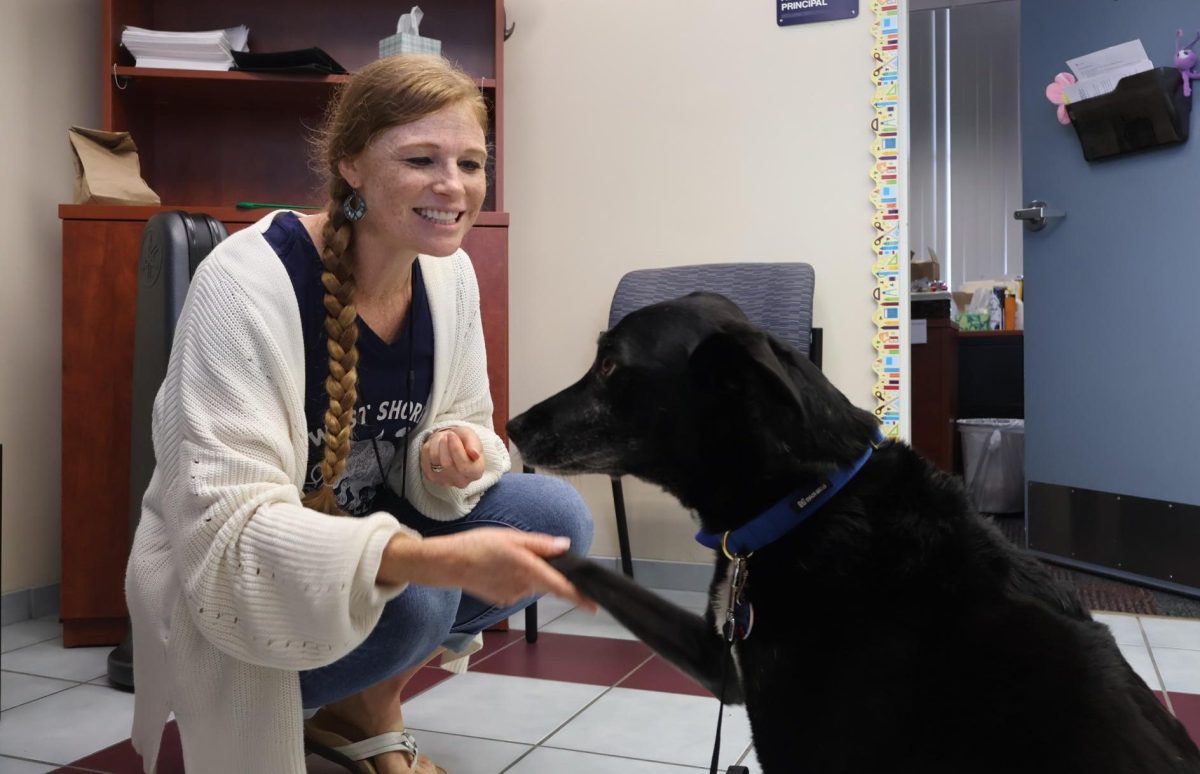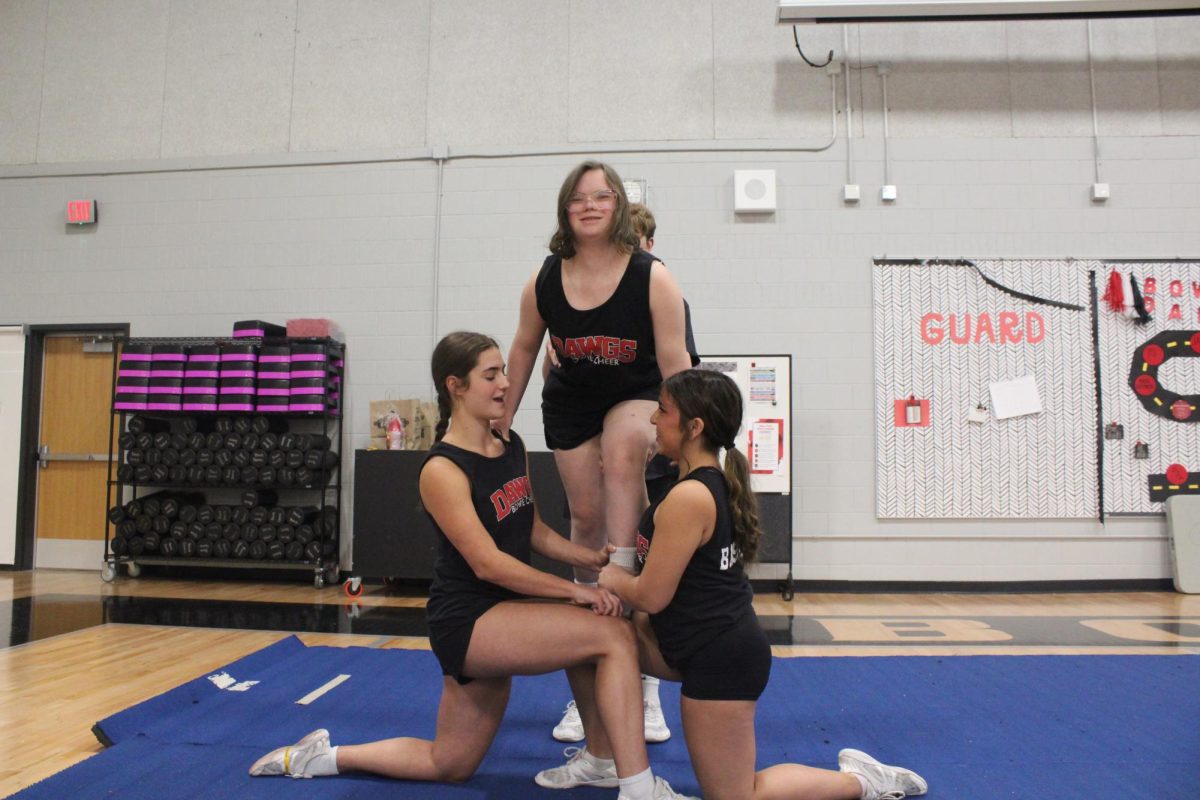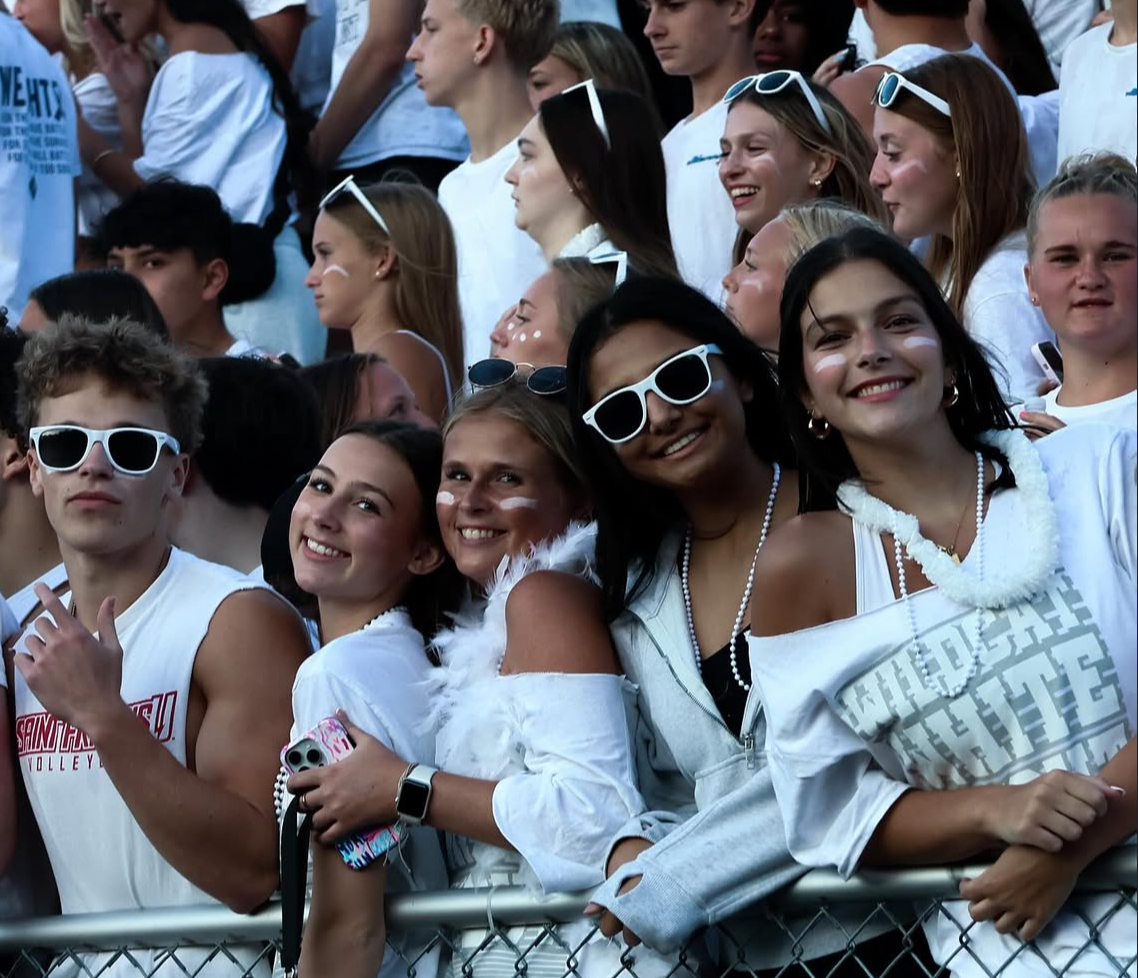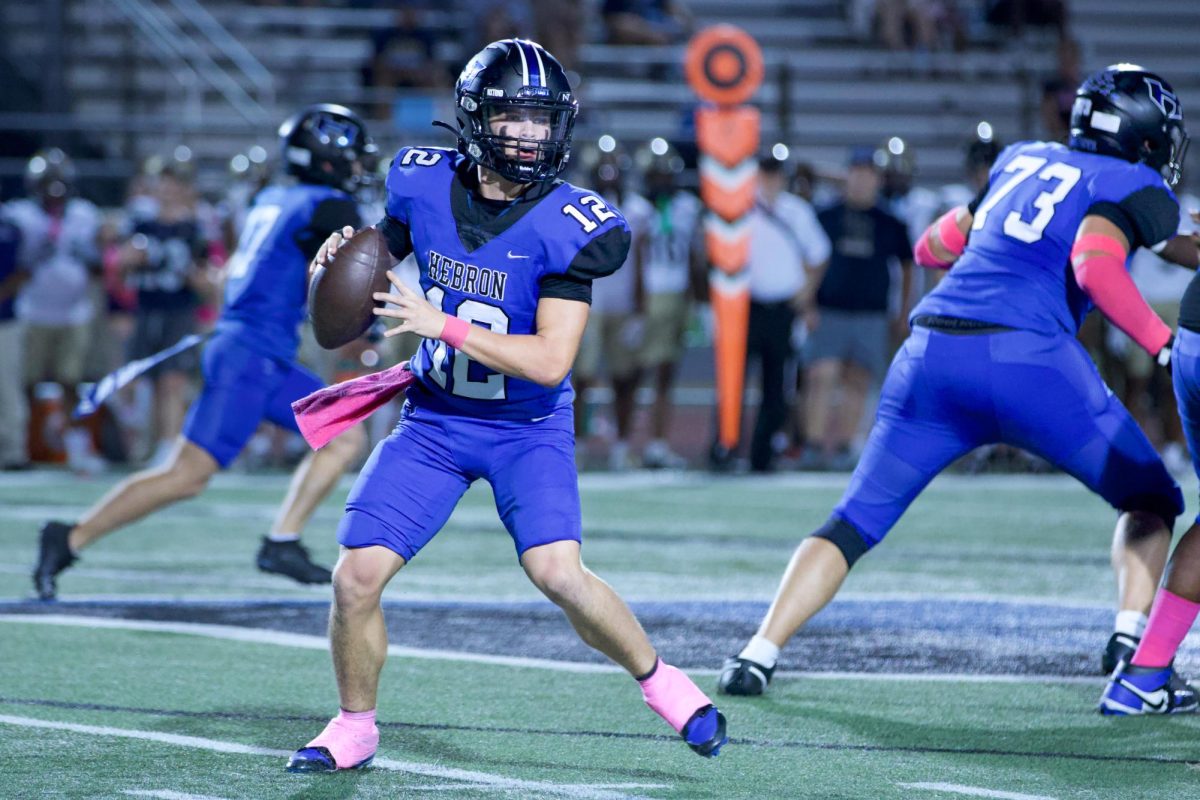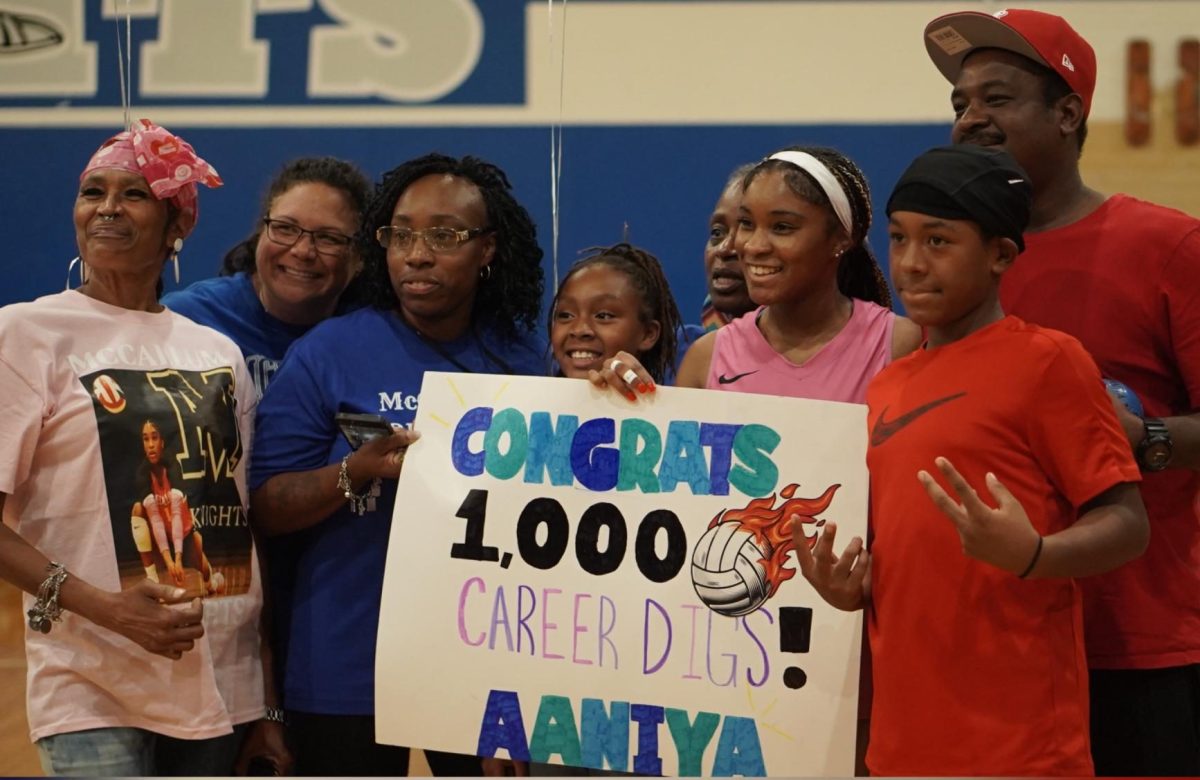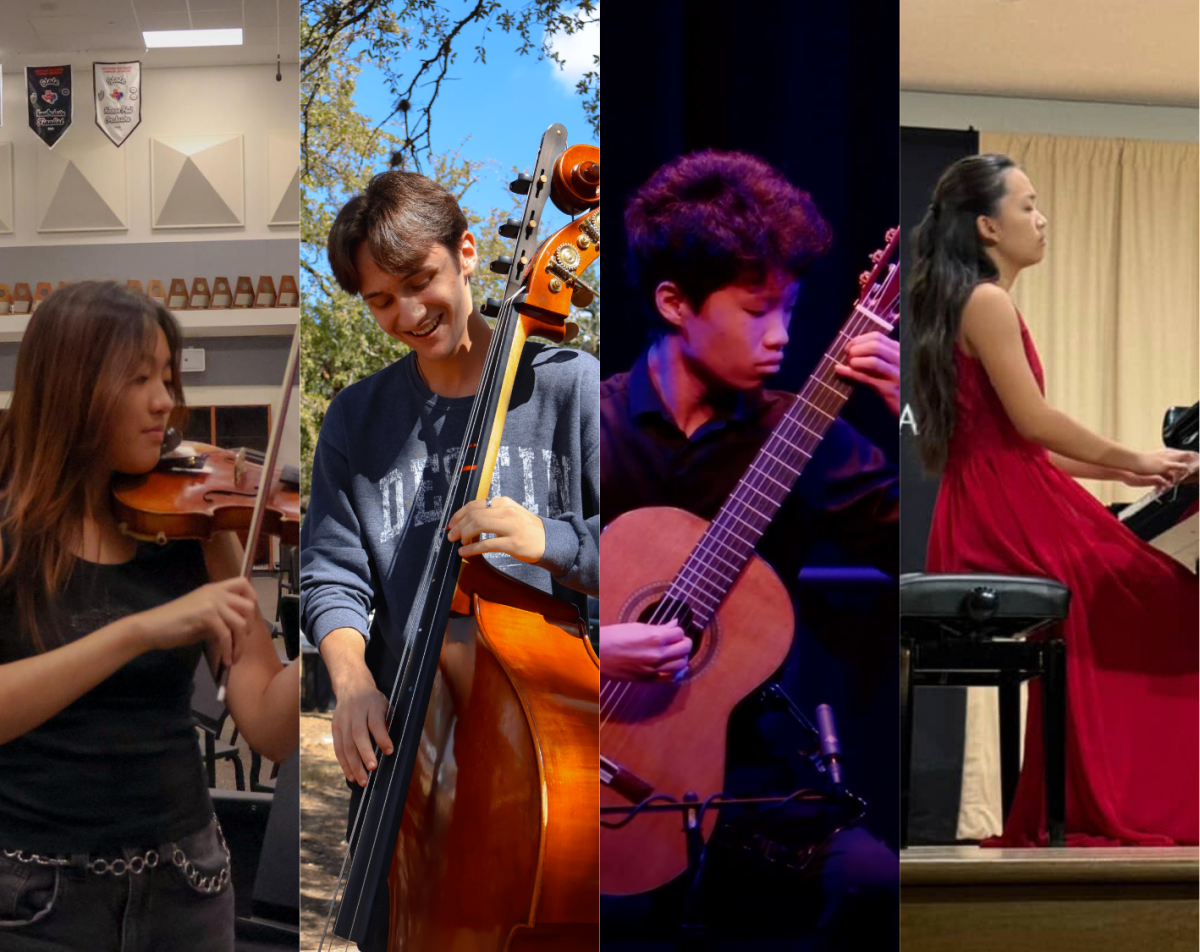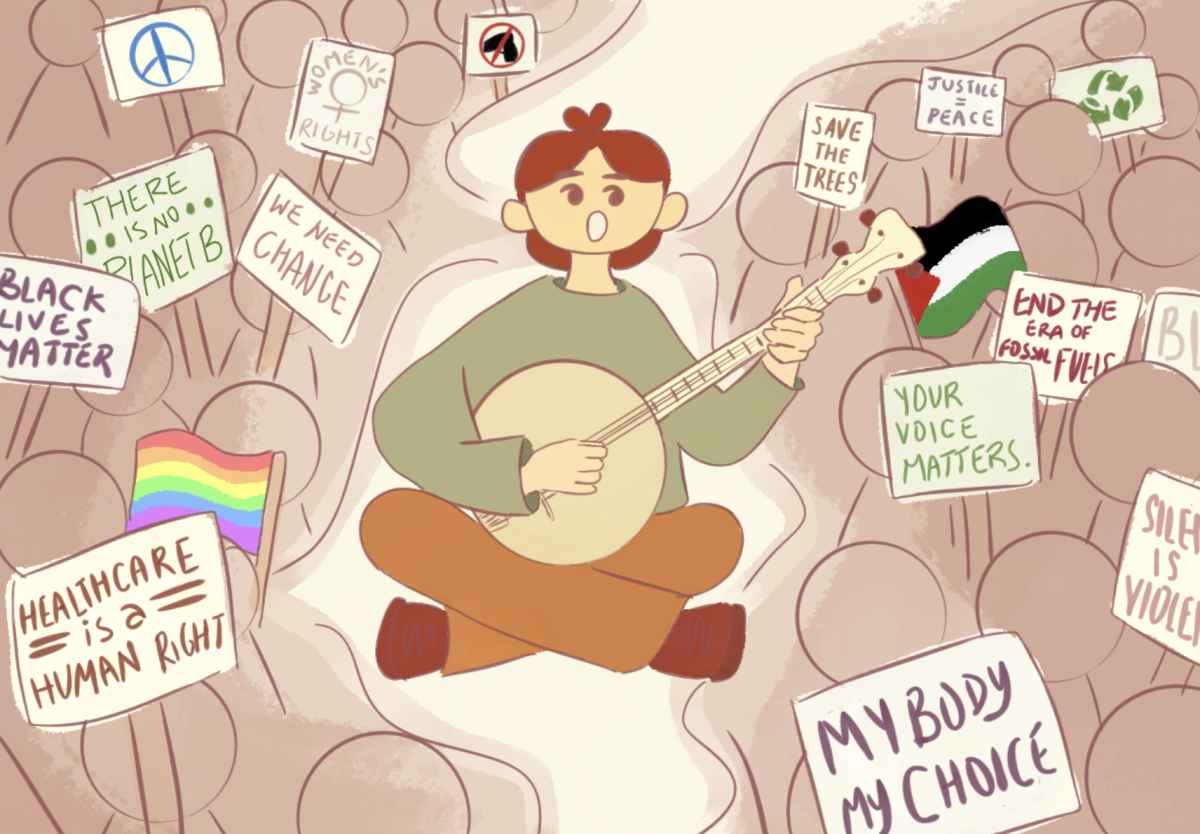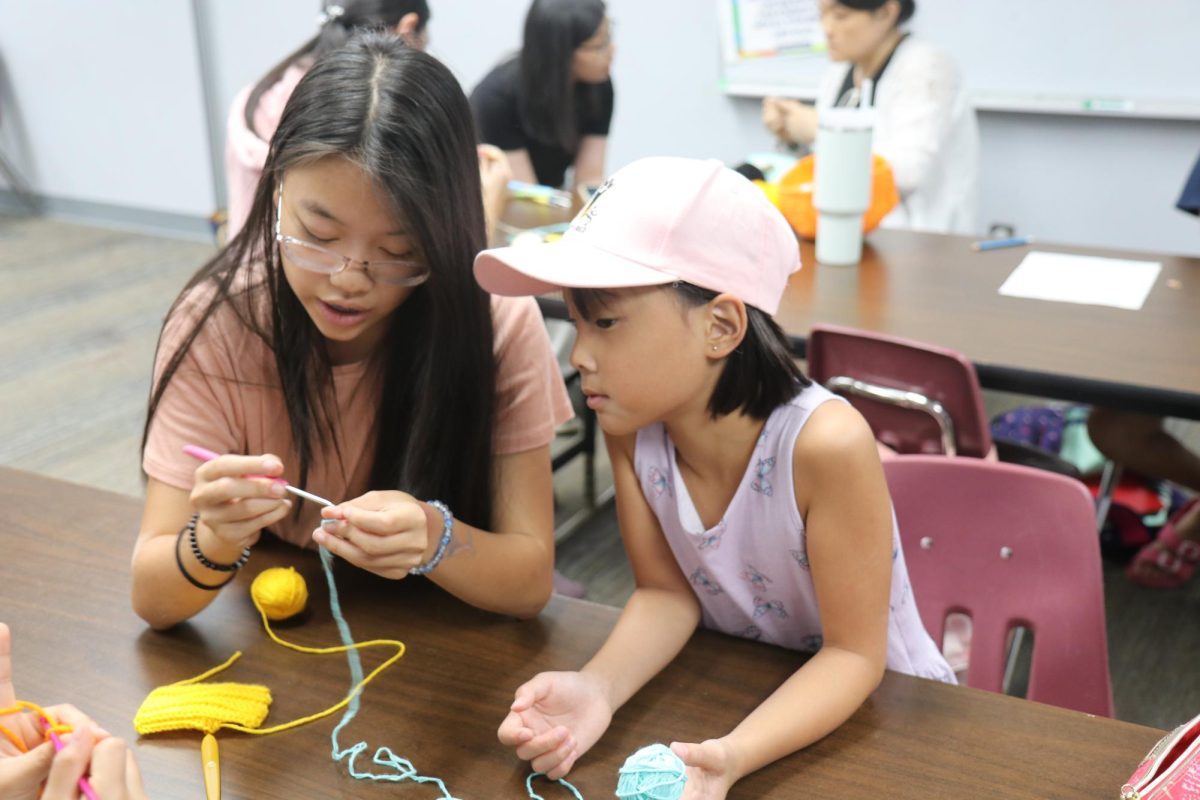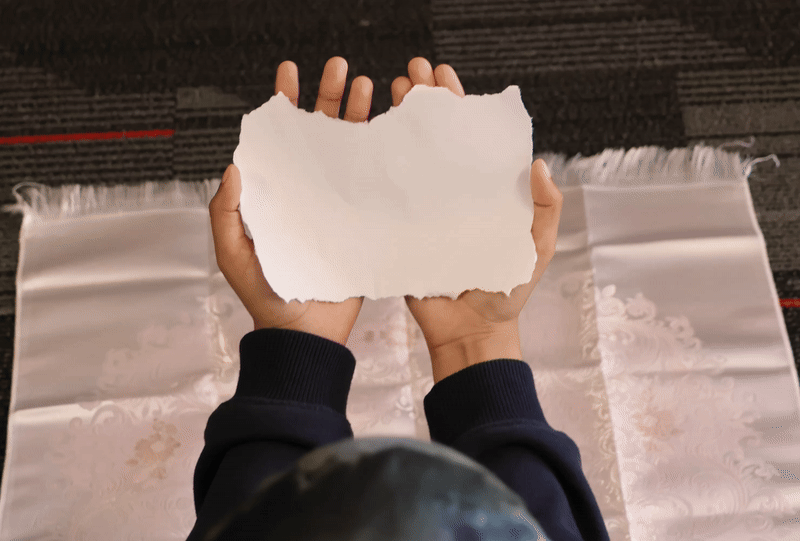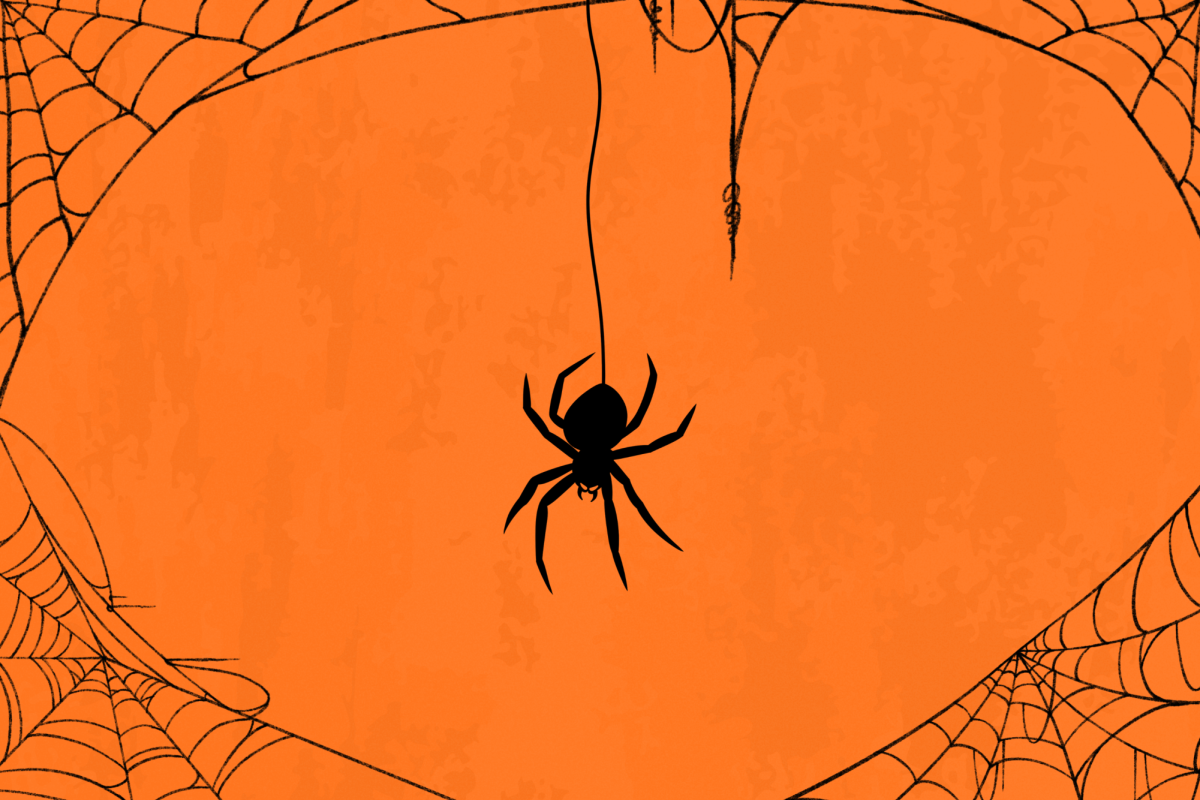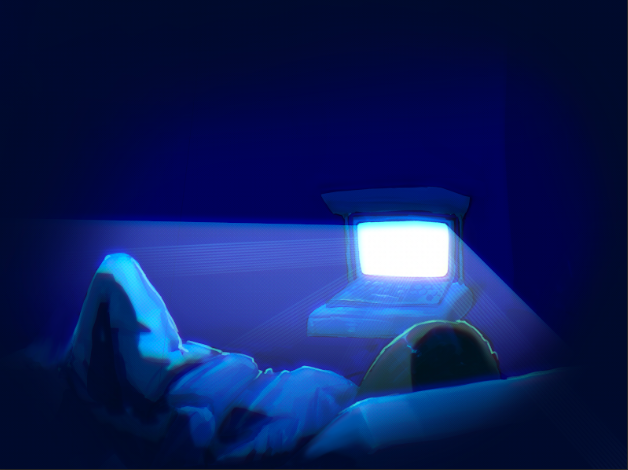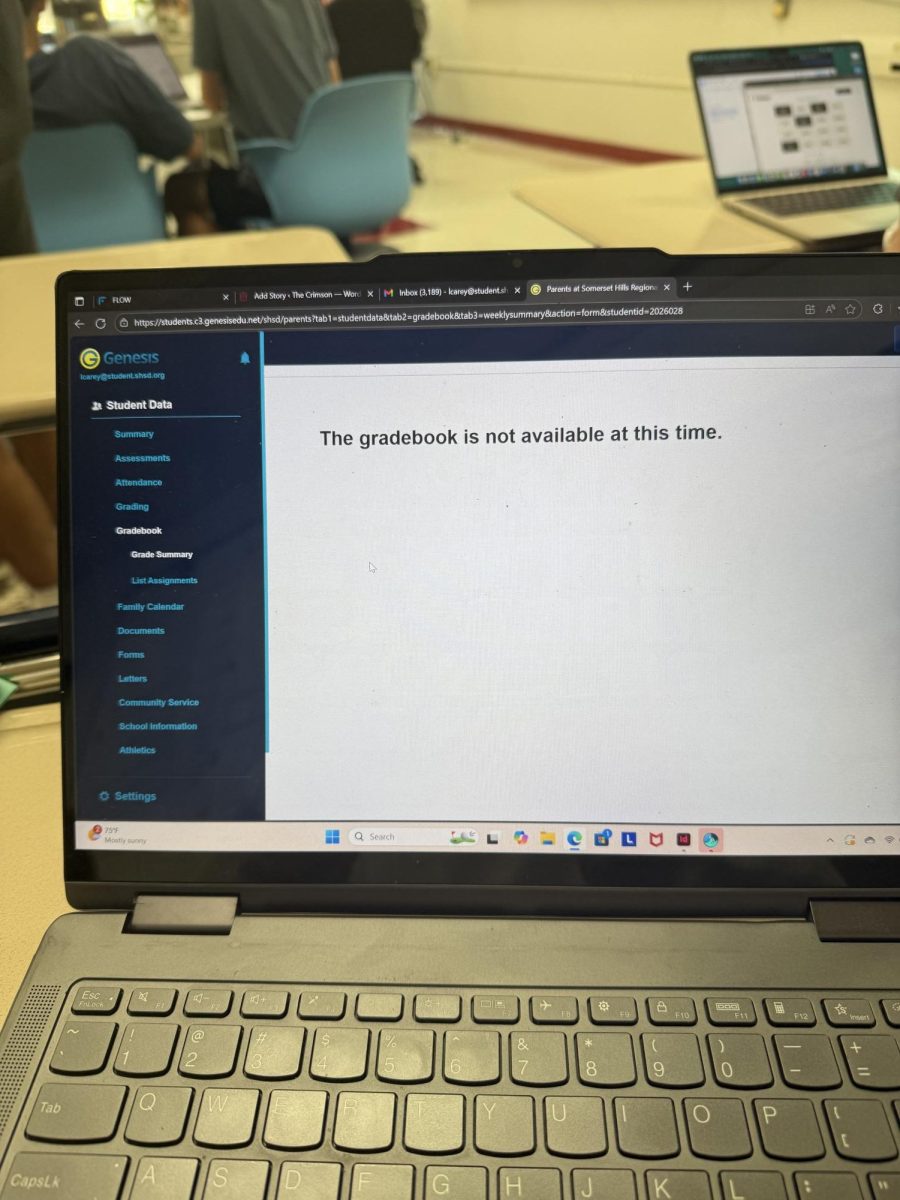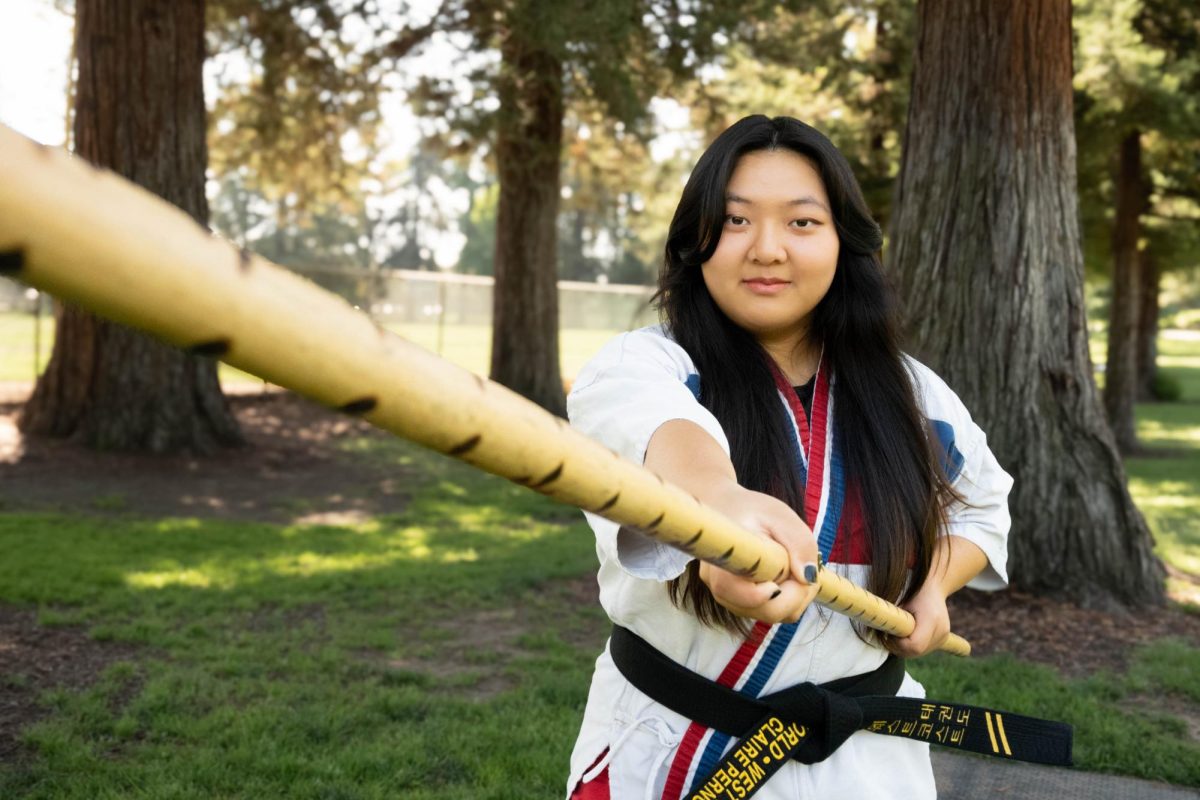It’s the last event at senior Claire Perng’s second-degree black belt exam, a bo staff speed competition that pits two martial arts world champions against two members of the studio’s demo team. The crowd murmurs with excitement, their gazes drawn to the vibrant uniforms of each competitor as both pairs poise their long wooden staffs with elegance. Will the renowned champions finish all 24 movements first, or will the younger partners claim victory?
“Ready and… go!” The gym erupts in cheers as the competitors whip through their rehearsed forms in a frenzy, racing to finish before their opponents. Eight seconds tick past before the audience rejoices in astonishment — it’s a well-earned tie between the world champions and the demo team.
Claire recalls this moment as one of her many inspirations for mastering the bo staff in karate.
“It was so cool that they were able to finish at the same time as these world champions when they’re around my age,” Claire said. “When I was learning the fighting form, I thought, ‘I want to also be that fast.’ I worked with my partner, and we practiced the bo staff fighting form outside of class, at a park and after class. We got our record to 11 seconds.”
Seven years ago, Claire started training at her current mixed martial arts studio Ernie Reyes’ West Coast World Martial Arts (WCWMA). Now, she’s a second-degree black belt who works with various weapons such as sticks, knives and of course, bo staffs. Degree exams for black belts occur every six months with 7 a.m. weekend training sessions starting 10 weeks prior to testing — a true test of the trainees’ commitment.
“In karate, something they always emphasize is discipline,” Claire said. “Discipline to show up and train, discipline to focus on your training even when your friends might be around and you want to just goof off with them. And also, focus — the physical and mental sides of perseverance. During our tests, our teachers sometimes say, ‘We don’t care if you’re tired, keep going.’ This is something we have to do, which also shaped me as a person.”
Beyond her individual training, Claire also works as an assistant instructor for lower-level martial arts classes at WCWMA. Arriving earlier to the studio allows her to interact with younger students and drill them on techniques before attending her own class. She feels that interacting with the trainees has helped her discover a teaching style.
“My karate teachers emphasize that as black belts, we should be living up to the standard of our rank and acting as an example for the students who are lower-ranked,’” Claire said. “When I’m helping out and someone messes up, I don’t necessarily say, ‘You did this wrong, try to do this.’ I take a more relaxed approach and act out what they did a little comically. It’s finding the balance between being strict and being more playful with the students.”
Within martial arts, karate is not Claire’s only focus. Having attended the upper school’s afterschool capoeira class every semester since her frosh year, she credits the Afro-Brazilian martial art for allowing her to engage with peers in a new way. While Claire’s previous experiences with sparring in karate included a rigid scoring system, capoeira’s rules were less defined, and its fighting styles were authentic to each person she encountered.
“Everyone plays capoeira a little bit differently; it’s different from sparring,” Claire said. “Capoeira is more like a conversation or a game in a way, which is why we call it ‘playing.’ It’s playful, and everyone has their own unique style of what pace they go at or what techniques they use.”
Close friend and senior Ainslie Chen attended capoeira class with Claire in frosh year. Though the two had initially met in seventh grade, Ainslie caught unique glimpses of Claire’s personality through her capoeira playing techniques.
“Over the years, she has become less afraid of expressing who she really is,” Ainslie said. “She’s super fast at learning, but she’s also a very hands-on kind of person. She’s not afraid to get playful.”
Claire’s dedication also shines in her academics. Economics teacher Dean Lizardo taught her last year in AP Economics and currently in Behavioral Economics and Econometrics. He notes the level of enthusiasm Claire brings to the classroom.
“I know that I can expect high standards from Claire,” Lizardo said. “She’ll always try her best to make sure she understands the material and does it well. As I’ve grown to know her more, she has come out of her shell in the sense that I know that she’s willing to share stories, and that makes the class really interesting in that regard.”
Outside of classes and training, Claire spreads her support and contagious sense of humor to everyone around her. Senior Felix Chen recalls the countless late nights when he and Claire exchanged their worries and encouragement before class assessments.
“One thing that I think anyone can say about Claire, and that she’ll always agree with, is that whenever we get together, we always end up talking a lot about anything and everything,” Felix said. “Whether it’s something that’s just really, really personal or lighter-spirited, academic or about your day, she’s always there to listen and hear and give advice if you need it and lend a listening ear if you want to talk.”
In the future, Claire strives to pass her third-degree black belt exam in May and fifth-degree after college. But as different stages of her life come and go, one aspect remains unchanged: her commitment to being playful, regardless of what she does.
“I hope the capoeira underclassmen carry on the spirit of being friendly, playful and encouraging with the new members, and also have fun,” Claire said. “I want them to think: ‘I genuinely like being here because I can see my friends, play capoeira and also help guide the underclassmen and make friendly conversation about their lives.’ I want to continue the welcoming and positive environment of the class.”
This story was originally published on Harker Aquila on October 23, 2024.




